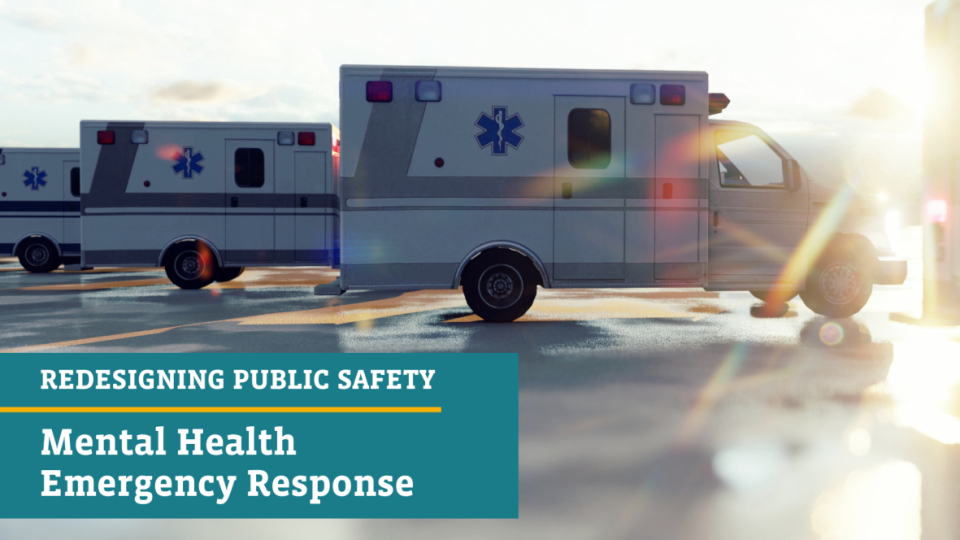Mental health is a historically unrecognized and underinvested public health issue. Solutions to mental health crises have thus been equally underdeveloped, politically passed off to police officers who aren’t professionally equipped to handle them. This results in a criminalization of mental illness with outsize consequences: Nearly 37% of people in state and federal prisons, and 44% of people in local jails, have been diagnosed with mental illness; since 2015, over one-in-five (21%) people killed by police had a known mental illness. Twenty percent of the U.S. population experiences a diagnosable mental illness within a given year.
These statistics frame a gravely unequal landscape, one that reflects an urgent need for public safety systems that ameliorate the disparate treatment by police of those experiencing mental health crises. That’s why CPE not only published Redesigning Public Safety: Mental Health Emergency Response—a comprehensive white paper on the topic, including recommendations for alternatives and other policy solutions—but hosted Care Not Punishment: Equitable Responses to Mental Health Emergencies, a webinar in which our panel of experts discussed how communities can better address mental health emergencies through public health and legal alternatives geared toward a more equitable, comprehensive, and evidence-led vision of safety for all. The panel featured representatives from leading public health, alternative response, and advocacy networks alongside CPE’s Government Affairs Manager, Charlotte Resing.
Our panelists have seen the evidence first-hand: communities use alternatives when they’re made available to them. “We see a lot of communities taking advantage of the resources that are out there that they can use to create alternative options,” says Shannon Scully of NAMI. “This isn’t necessarily about sending someone out besides law enforcement, this is about giving your community different options to reach out for help when [they] need it… Let’s create options for our community members to make decisions about what they need, in [sic] that moment, and how to leverage that.” Giving our community members the agency to decide how to respond to emergencies not only improves health and safety outcomes, but provides them important political power when advocating for other public safety redesigns.
Despite most showing symptoms as early as adolescence, it takes on average ten years for a person living with mental illness to begin receiving proper treatment in the United States. With over 28 million people—disproportionately Black, Brown, and Indigenous—uninsured nationally, the state of mental health care in the U.S. represents a major public health crisis. Like all public health crises, solutions ought to be informed by science and guided by experts.
Fortunately, the early research on mental health emergency response models that shift responsibility away from police and into the hands of communities and their mental health professionals is promising. From our white paper:
Individual crisis teams have been associated with fewer hospital admissions and reduced incarceration of people experiencing mental health emergencies. They have also been shown to reduce unnecessary police contact and rarely require police engagement related to safety concerns. A recent study on Denver’s STAR program estimated that in a six-month period, the program prevented nearly 1,400 criminal offenses.
The early success of these programs is a testament to the power of data-led solutions. Some other, related takeaways from the webinar include:
- Unarmed services can not only effectively divert people from arrest, hospitalization and crisis services but actually improve people’s mental health and reduce overall crime.
- Since law enforcement is “the only social service [we have] that is available 24/7, 365 days a year” (Shannon Scully), successful alternative emergency response models will eventually have to be equally available.
- Alternative crisis response programs can be funded by diverse sources including state and federal grant monies as well as Medicaid. There are many practical avenues for securing funding.

